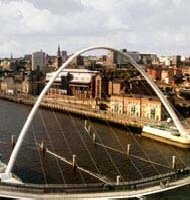Planners


Development and the Historic Environment
Local authorities are essential to the protection and management of England’s historic environment. You are a local expert who knows the issues and how to respond.
The historic environment contributes to successful regeneration because people enjoy living in an interesting and attractive environment. Archaeology, historic buildings and landscapes should be fully integrated into the strategy and policy of your council. Unthinking loss of historic assets, whether statutorily protected or not, cannot be remedied.
Development control must be based on an appropriate level of information. This is particularly important when evaluating historic environment issues to avoid requests for further details after an application has been validated. Early assessment enables conservation as well as commercial needs to influence the design of the proposed scheme.
Who should you ask?
Specialist input at an early stage is vital to prevent conflict and potential delays to your project. Involve Conservation Officers and your Archaeological Advisors in pre-application discussions. Collaboration is an effective use of resources.English Heritage advises local and national government and provides expert guidance on a wide range of conservation matters. Enquiries should be directed through the regional teams. Local and national amenity groups provide a further source of specialist advice.
The RTPI 'Conservation of the Historic Environment: A Good Practice Guide for Planners' (2000) notes that members should have a working knowledge of current conservation law, definitions, guidance and sources of information. HELM guidance modules may be selected to form part of a CPD and training package.
Guidance and policy documents are available on this website when accessed through the website's five topic buttons: Regeneration & Design, Understanding & Recording, Place & Placemaking, Managing & Protecting and Funding. English Heritage documents can also be searched and downloaded as a PDF by using the Guidance Library.
The HELM website has a list of guidance produced by local authorities, amenity groups and relevant bodies which can also be found using the Guidance Library. Case Studies may be searched for examples of good practice across the country.
HELM offers training for councillors and officers in local authorities and government agencies.
